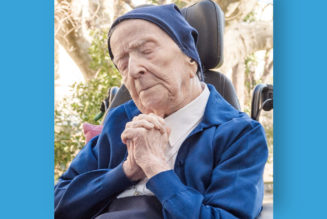NH is again considering passing a physician assisted suicide bill. HB1659 will get a hearing on March 4. It says:
“This bill allows a mentally competent person who is 18 years of age or older and who has been diagnosed as having a terminal disease by the patient’s attending physician and a consulting physician to request a prescription for medication which will enable the patient to control the time, place, and manner of such patient’s death.”
Sounds compassionate. Those who argue for physician assisted suicide often paint an emotional picture of a dying patient who’s unable to escape immense pain, and who’s simply looking for release and relief.
But statistically, that’s not what happens.
Rehumanize International reports:
From a study of the results of Oregon’s 2013 Death with Dignity Act:
91% of patients cited “loss of autonomy” as one of the concerns that led to them requesting assisted suicide. 89% cited a fear of being “less able to engage in activities.” 81% cited “loss of dignity,” 50% cited “loss of control of bodily functions,” and 40% cited “feelings of being a burden.”
We should not simply accept that fears of disability are driving people to suicide. Everyone deserves suicide prevention care — including those who are ill or disabled.
The NH bill mentions broad concerns like “loss of independence” and “embarrassing indignities” as reasons to seek suicide.
As NHCornerstone points out, “By making assisted suicide part of the discussion and a treatment ‘option,’ especially when someone has a chronic illness, it’s only a matter of time before personal choice becomes a ‘duty to die.’”
Assisted suicide bills are driven by ableism that preys on the vulnerable. They tell people who are already in distress, “If you can’t do everything an able-bodied person can do, your life isn’t worth living. It would be better for you and for everyone else if you were dead.”
We don’t talk this way to people. We don’t tell them, “It would be cheaper, easier, better for everyone if you didn’t exist.” Instead, we try to make vulnerable people’s existence more manageable — lessen their pain, relieve their distress and depression, bring services to them, keep them company, reassure them that they are entitled to be alive in the world, just as much as the strong and healthy and productive.
This is, in fact, what NH is allegedly already doing, as it struggles mightily to decrease the state’s suicide rates, which have increased an astounding 48% from 1999 to 2016, significantly higher than most of the country, especially among teens. How can we say we have a goal of zero suicides while also telling vulnerable people that suicide is part of normal medical care? The bill is dangerous and offensive in itself, and also opens the door for even broader legislation that will encourage and even bully people into believing it’s their duty to remove themselves from the world.
NH residents, we have a duty to reject discrimination, including the ableism that disguises itself as compassion. Please take a minute and contact your state rep and ask him or her to vote against HB 1659. You can use this site to find out who your representative is, and click on their name to get contact information.
Feel free to copy and paste anything from this post. If you call, you just have to give your name and that town your calling from, and say that you’re calling to urge your rep to vote against HB 1659 regarding assisted suicide. My state rep was out of the office for the week when I called, so I left a message saying I strongly urge him to oppose this bill, because it’s a form of ableism and is totally at odds with any efforts to reduce suicide in our state. If you have a personal story to tell, that’s probably a good thing to include.
I know it’s hard to take time to stop and make a phone call or send an email, but we are a small state and our voices really do make a difference. Tell your rep what you want!
Further reading: Pro-life Even at the End of Life: What the Catholic Church Teaches about Care for the Dying










